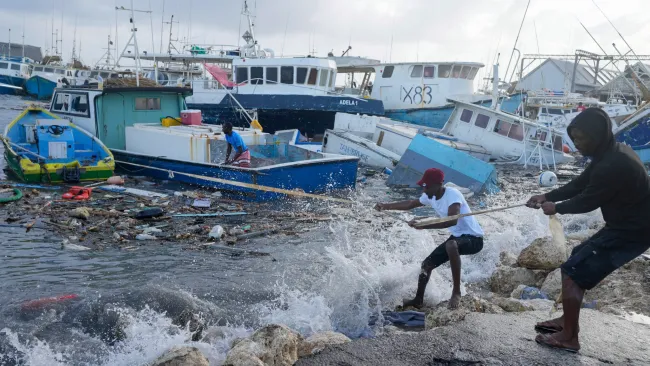Indonesia is set to introduce tariffs of up to 200 percent on imports from China, its biggest trade partner, citing an oversupply of goods from the world's second-largest economy.
Indonesian Trade Minister Zulkifli Hasan said Friday that Western tariffs on Chinese goods are causing them to be redirected to countries such as Indonesia, according to media reports.
The Southeast Asian country is the latest on a growing list of developing nations to announce it would use the measure to shield local industries from perceived Chinese overcapacity.
"The United States can impose a 200-percent tariff on imported ceramics or clothes; we can do it as well to ensure our MSMEs [Micro, Small & Medium Enterprises] and industries will survive and thrive," he was quoted as saying.
Newsweek reached out to the Indonesian embassy in the U.S. via a written request for comment.
The new import duties, which will range down to a minimum 100 percent rate, will take effect as soon as the regulation has been issued, the trade official said.
Chinese exports to Indonesia have dramatically risen in recent years, last year reaching $67.1 billion in value, more than double the 2016 figure, according to the U.N. Commodity Trade Statistics Database.
Chinese investment has also been pouring into Indonesia, as well, as part of a broader uptick in investment in the Asia-Pacific region.
A report published earlier this year by Australia's Griffith University and China's Fudan University, said nearly half China's investment in the Asia-Pacific went to Southeast Asia, with Indonesia receiving the most of any single country in that region.
Indonesia's decision to raise tariffs echoes recent protectionist moves by other Chinese trade partners.
Last month, Turkey announced a 40-percent tariff on Chinese vehicles amid projections that Chinese firms will more than double their 4.5 percent share of Turkey's automobile market.
Also last month, the European Union said it would raise tariffs on Chinese electric vehicles from 10 percent to as high as 48 percent.
The 27-member block cited Chinese subsidies that allegedly give its EV makers an unfair advantage.
China said the anti-dumping measures "lack factual and legal basis" and blasted the EU for hyping up the threat of Chinese state subsidies, acting against the interests of European consumers, and undermining global climate change efforts.
In May, President Joe Biden increased tariffs on $18 billion worth of Chinese products. Duties on EVs increased from 25 percent to 100 percent, though China's share in the U.S. EV market is negligible.
China's foreign ministry did not immediately respond to an emailed request for comment.
Disclaimer: The copyright of this article belongs to the original author. Reposting this article is solely for the purpose of information dissemination and does not constitute any investment advice. If there is any infringement, please contact us immediately. We will make corrections or deletions as necessary. Thank you.





